As Supreme Court justices questioned the legality of Donald Trump’s sweeping tariffs at a hearing on Wednesday, Amy Coney Barrett said it would be a “mess” to issue refunds.
The tariffs in question were imposed under the International Emergency Economic Powers Act (IEEPA) of 1977.
It allows the president to “deal with any unusual and extraordinary threat, which has its source in whole or substantial part outside the United States, to the national security, foreign policy, or economy of the United States, if the President declares a national emergency with respect to such threat.”
- Supreme Court questions legality of Trump's tariffs imposed under the 1977 IEEPA law during Wednesday's hearing.
- Refunding tariffs if they are found to be illegal could be a "mess," says Amy Coney Barrett.
- Trump administration argues IEEPA grants broad regulatory power, but justices highlight the statute lacks authority to raise revenue.
Supreme Court justices heard arguments at a hearing on Wednesday
Image credits: Mario Tama/Getty Images
Trump first cited IEEPA back in February when he imposed levies on China, Mexico and Canada, and said those related to drug trafficking, which he described as an emergency.
He then invoked IEEPA again in April to impose reciprocal tariffs—ranging from 10% to 50%—on almost every single country across the globe.
Trump’s justification for those tariffs was that the U.S. trade deficit posed an “extraordinary and unusual threat,” and he later pressured countries to make trade deals to lower those rates.
The Trump administration has collected roughly $90 billion in revenue from the tariffs that have been invoked under IEEPA, almost half of the $195 billion collected from tariffs so far.
Image credits: Chip Somodevilla/Getty Images
It is understood that some, if not all, of that $90 billion could be refunded if the Supreme Court rules against Trump and agrees with three lower courts that his tariffs are illegal.
“If you win, tell me how the reimbursement process would work. Would it be a complete mess?” Trump nominee Barrett asked Neal Katyal at the Supreme Court hearing.
Katyal, representing five small businesses challenging the tariffs, said those companies would be entitled to a refund, but described it as a “very complicated thing.”
“So, a mess,” Barrett questioned.
“It’s difficult, absolutely, we don’t deny that,” Katyal responded.
Image credits: Bill Clark/CQ-Roll Call, Inc via Getty Images
If the Supreme Court, which has a 6-3 conservative majority, agrees that the tariffs are an overreach of presidential power, it will be the first time the court has ruled against Trump since the start of his second term.
At the heart of Wednesday’s arguments was the wording of IEEPA, with Solicitor General D. John Sauer arguing on behalf of the administration that it was “capacious.”
“None of those verbs details the specific mechanism of control; a regulation or prohibition, for instance, could be an asset freeze, an embargo, a quota, or any number of other means of control. In the context of ‘importation,’ tariffs easily qualify as one such means,” his brief stated, according to Newsweek.
During oral arguments, Barrett asked Sauer, “Would you really describe them as capacious? Because, to me, things like nullify and void have definite meanings.
Solicitor General D. John Sauer argued on behalf of the Trump administration
Image credits: Tom Williams/CQ-Roll Call, Inc via Getty Images
“I agree with you that regulate is a broader term, but those words, I think are powerful; they give–they pack a punch–but I wouldn’t describe them as capacious in the sense that they have a wide range of meanings.”
Justice Elena Kagan said, “Crucially, what it doesn’t have here is anything that refers to raising revenue, so it has a lot of verbs, it has a lot of actions that can be taken under the statute, it just doesn’t have the one you want.”
Sauer clarified that his argument isn’t that IEEPA authorizes the president to raise revenue, but rather that it gives the president regulatory authority.
Under the Constitution, Congress holds the sole authority to impose taxes and collect revenue, a power it has guarded closely since the nation’s founding.
Lawmakers argue that allowing the president to use emergency powers to impose tariffs blurs that separation of powers and risks undermining congressional control over taxation and trade policy.
Image credits: Maxine Wallace/The Washington Post via Getty Images
It was a point mentioned by Justice Neil Gorsuch, who asked Sauer, “I want it explained to me how you draw the line, because you say we shouldn’t be concerned because this is foreign affairs and the president has inherent authority, and so delegation off the books, more or less.
“And if that’s true, what would prohibit Congress from just abdicating all responsibility–to regulate foreign commerce, for that matter, declare war– to the president?”
“We don’t contend that he could do that,” Sauer responded.
The Supreme Court has not yet issued a ruling and while it is usually a process that takes months, it is expected to move faster in this case.


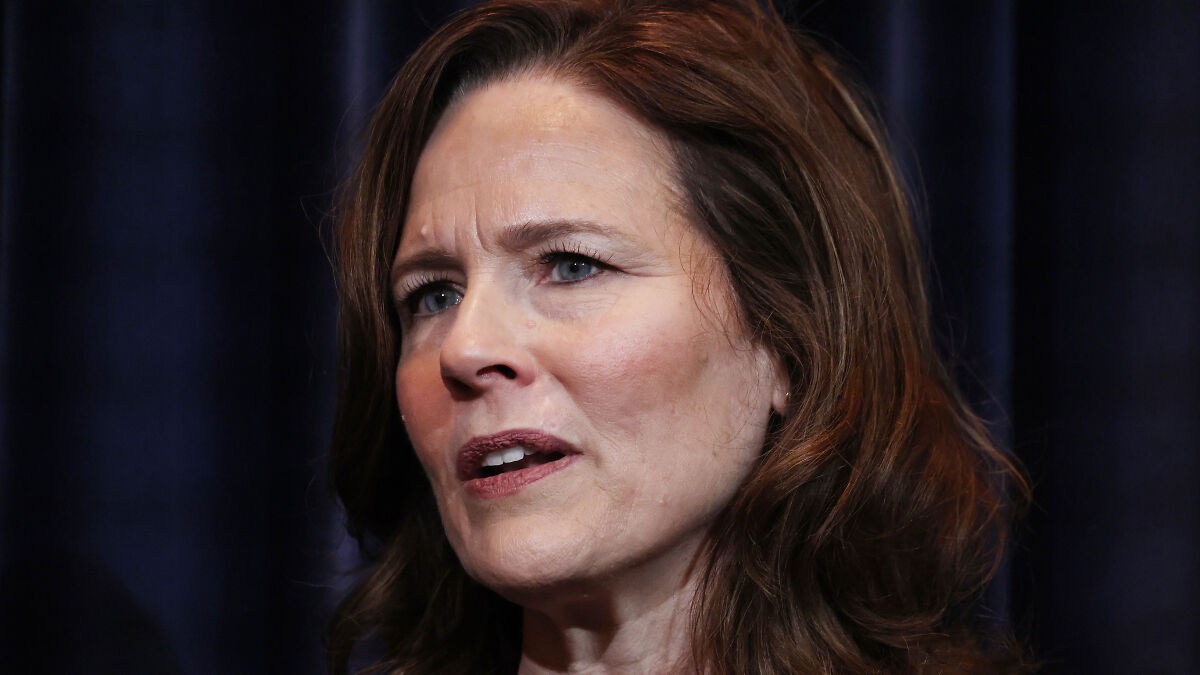

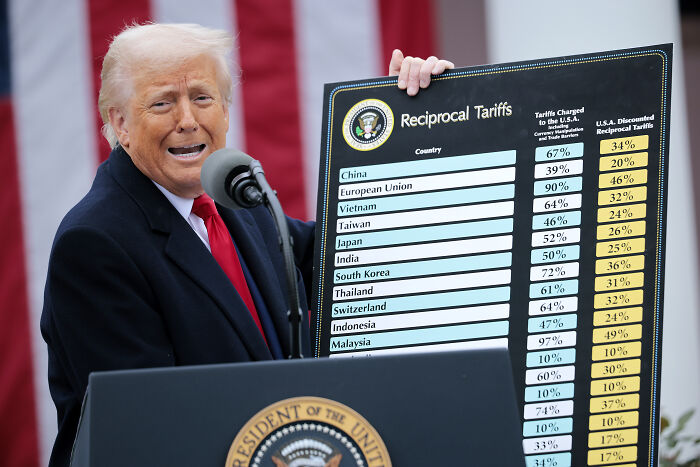
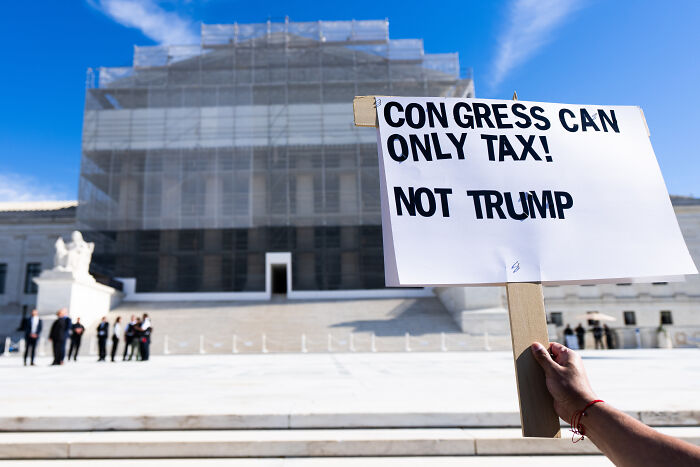
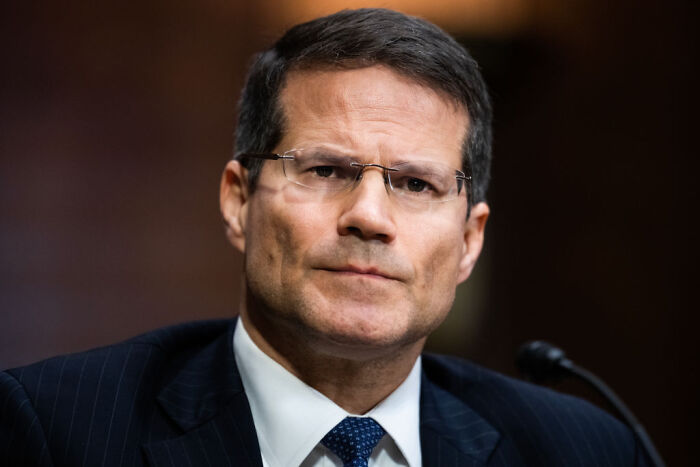
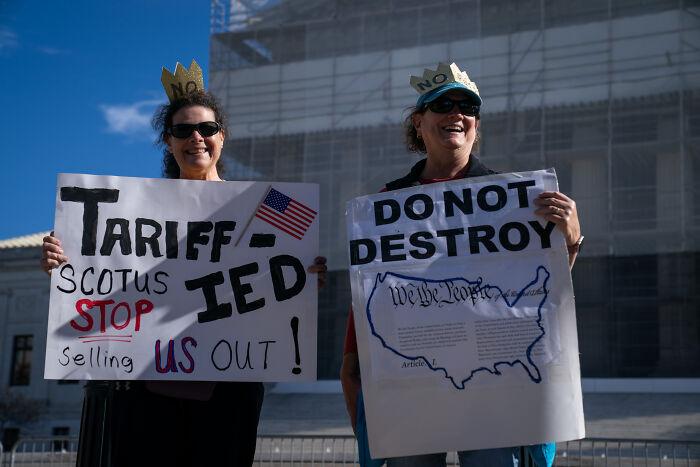



15
0